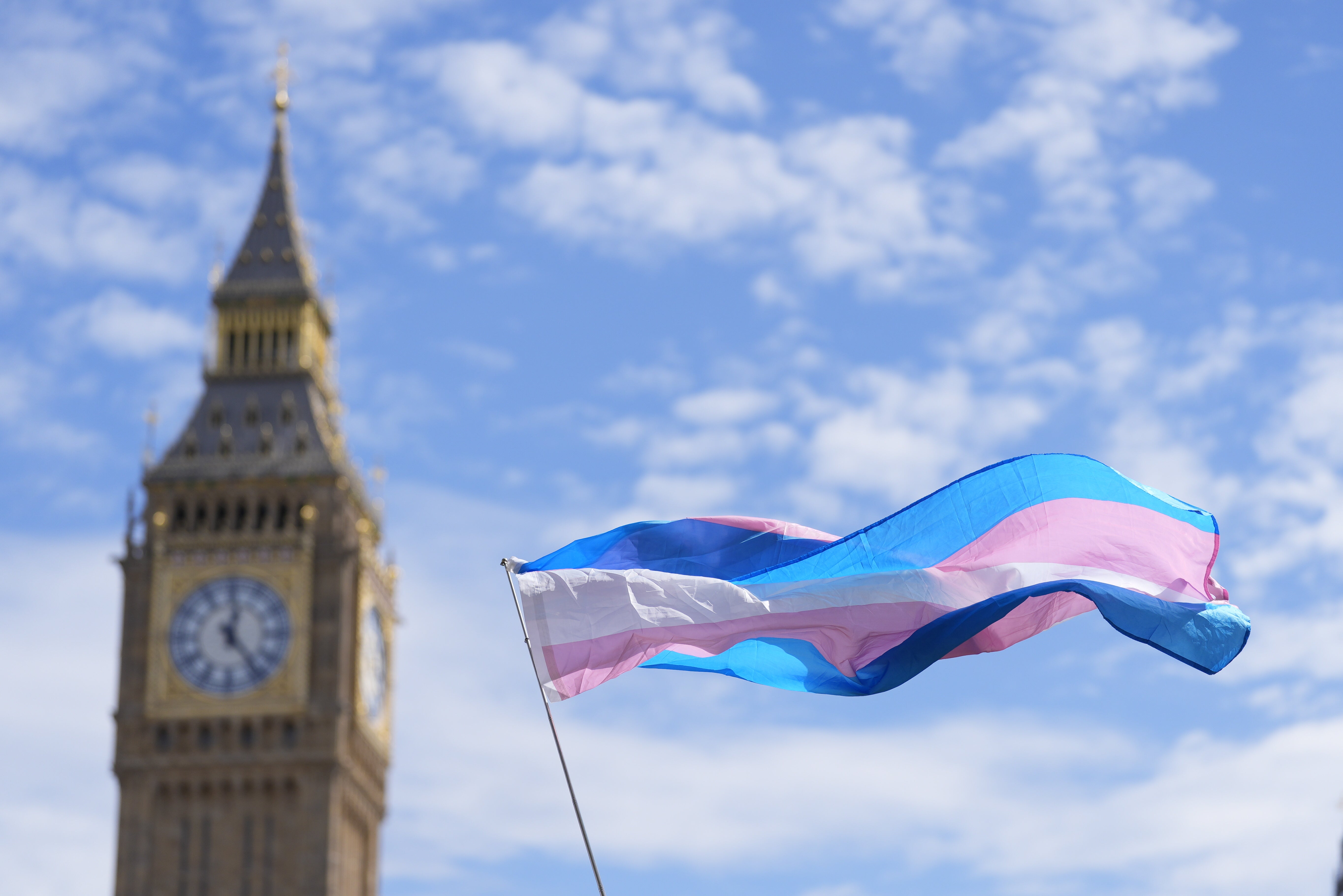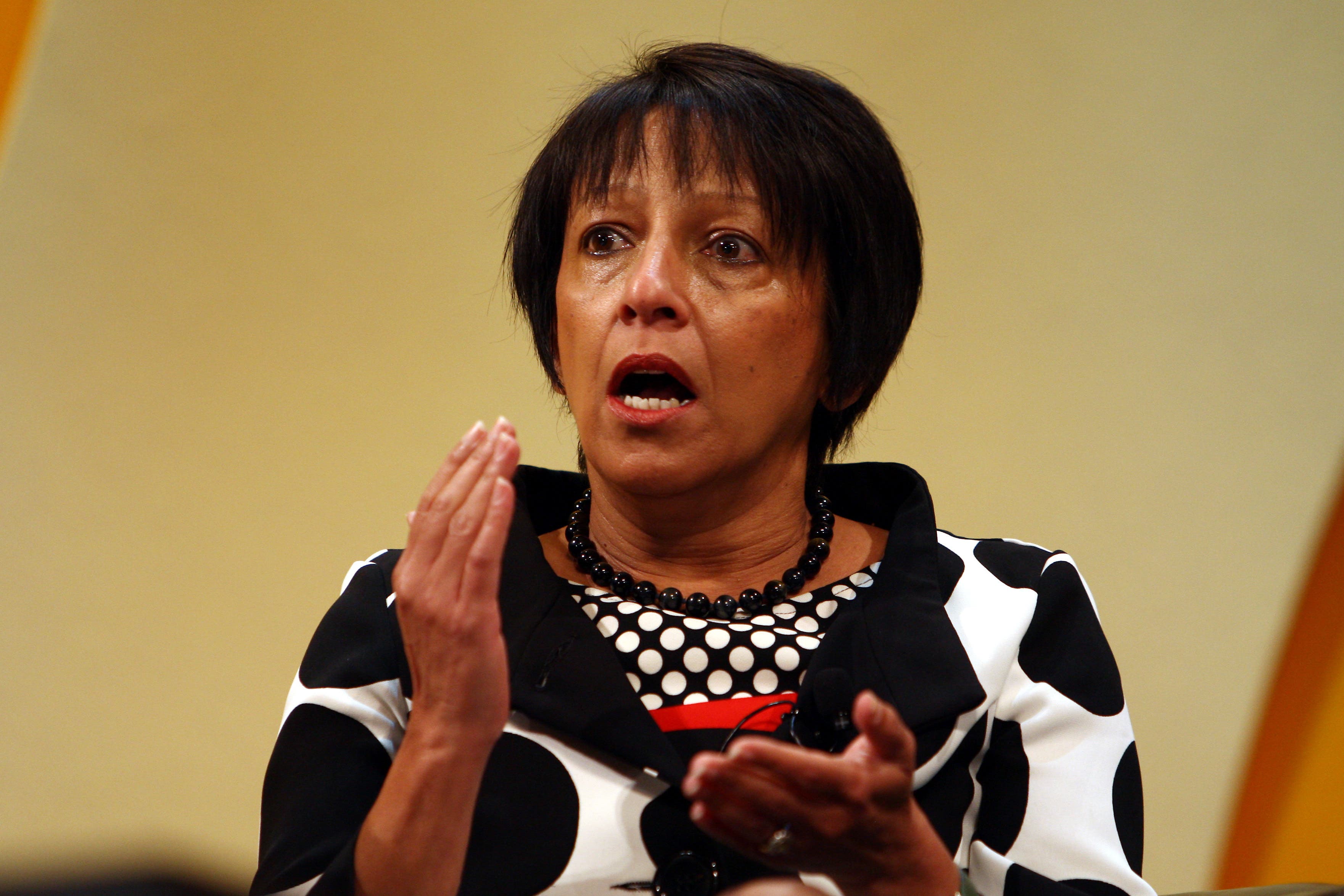ARTICLE AD BOX
The equalities watchdog is under pressure to withdraw its interim guidance on single-sex spaces in the wake of the Supreme Court ruling on gender, after campaigners dubbed it a “bigoted attempt to segregate trans people in public spaces”.
The Equality and Human Rights Commission (EHRC) has been accused of breaching trans peoples’ rights with campaigners saying it not only forces them into inappropriate spaces, but it also risks outing them.
It comes after the Supreme Court ruled that trans women are not legally women under the Equalities Act, a judgment which means that transgender women with a gender recognition certificate can be excluded from single-sex spaces if “proportionate”.

While gender critical campaigners have hailed the ruling as a victory for biological women, there are concerns it will put trans people at risk and exclude them from public life.
Interim guidance published by the equalities watchdog in the wake of the ruling says that trans women “should not be permitted to use the women’s facilities” in workplaces or public-facing services like shops and hospitals.
But it also says that “in some circumstances the law also allows trans women (biological men) not to be permitted to use the men’s facilities, and trans men (biological woman) not to be permitted to use the women’s facilities”.
It is unclear what these circumstances are or who is expected to make such decisions.
While the guidance adds that “trans people should not be put in a position where there are no facilities for them to use”, trans activist and model Munroe Bergdorf dubbed it a “tool of humiliation designed with the intention of stoking the escalating flames of British transphobia”.
Meanwhile, Steph Richards, CEO of trans campaign group Translucent, told The Independent that the guidance is likely to force trans people to out themselves, which she said would be in breach of Article 8 of the European Convention on Human Rights – which guarantees the right to respect for private life.
“Let’s say there is a trans woman working in an office in London somewhere, and the company turns around and says, ‘you can no longer use the female loos’, and perhaps only one or two people know that she's a trans woman.
“If she suddenly no longer goes in the ladies loo and she trots off four floors down to find a gender neutral loo - that is outing her, and that is a violation, in my view, of article eight of the European Convention on Human rights.”
Robin Moira White, a discrimination and employment law barrister, agreed, saying the guidance “would appear to be incompatible with trans people’s rights under the ECHR” and warned it would have a “horrific effect on trans lives”.
Helen Belcher, chair of campaign group TransActual said that officials have “have clearly not thought through any of the vast and disturbing consequences raised by the supreme court ruling”.
“The idea, as promoted this week by Keir Starmer, that there is now clarity as a result of this ruling and we can all just get on with our lives is pathetic, and demonstrates a woeful ignorance of the law and the realities in this area”, she said.
Ms Belcher warned that Labour is currently “continue supporting rhetoric and measures that place the UK on a collision course with the European Convention on Human Rights – and expose us as a nation now wedded to hate and discrimination”.
Instead, she urged the government to “step up, engage with us meaningfully and decide to protect all citizens, not just a loud, hateful few”.
It comes after the prime minister said he no longer believes trans women are women in the wake of the ruling, which he said brought clarity to the situation.
The prime minister has since said the government’s approach is to “protect single-sex spaces based on biological sex” and “ensure that trans people are treated with respect and … dignity in their everyday lives”.

“I do think this is the time now to lower the temperature, to move forward and to conduct this debate with the care and compassion that it deserves,” he added.
The Green Party has urged the EHRC to withdraw its guidance, saying it is “ill-considered and impractical”.
In a joint statement, party co-leaders Carla Denyer and Adrian Ramsay said the guidance is likely to cause “distress to the trans community and further confusion to employers, businesses and service providers who are trying to understand what the supreme court ruling means for them”.
“In particular, this guidance could put trans people at risk of discrimination in the workplace, and is overly prescriptive in a way that seems to fly in the face of the tolerance that we value in this country”, they added.
“This guidance should be withdrawn until the EHRC can produce something more thought-through which takes into account the voices of all those affected.”
However, Tory leader Kemi Badenoch said the issue of which toilets trans people should use is “not as complex a situation as it’s often made out to be.”
“The thing that has created the biggest problem isn’t trans people, it is predatory men who used lax rules to say, oh, actually, I’m a woman now, I’m going to women’s loos,” she told ITV’s Good Morning Britain.
Asked if transgender people should have separate toilet facilities, she said: “Almost all businesses I see have disabled loos. They are unisex, different from gender neutral. Trans people can use those. But if you are providing a single sex space, it has to be a single sex space.”
It comes just days after Labour minister Karin Smyth was unable to say which changing room transgender women should use after the Supreme Court ruling.
“Look, I think we need to make sure that in this discussion we are following both the law so that is clear for women and for service providers and you know... this varies upon what the provision of those service providers are. Large organisations, smaller organisations, many smaller organisations,” she told Times Radio.
Asked why it varies, Ms Smyth responded: “Because some will have unisex provisions. There might only be one bathroom, one changing room in an organisation. It’s a large complex issue so that’s why people have to be very clear on that guidance.”
The government has been contacted for comment.









 English (US) ·
English (US) ·